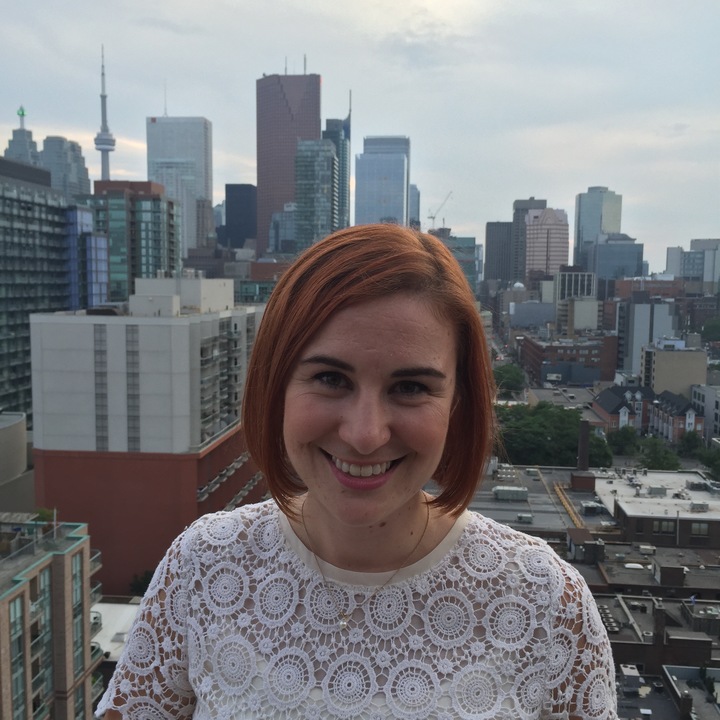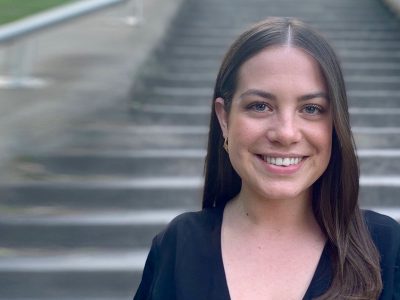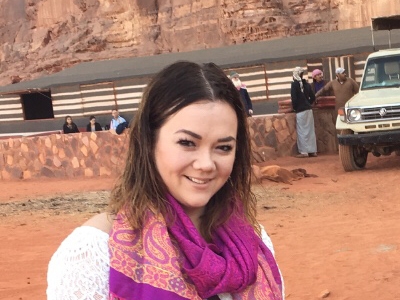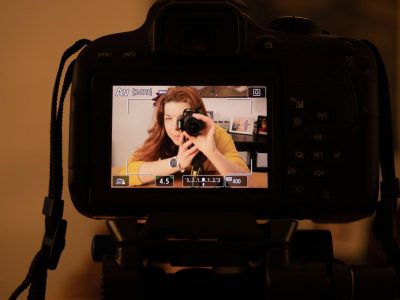This profile was part of the Faculty of Public Affairs’ 75 for the 75th series, which highlighted 75 notable alumni in FPA in honour of Carleton University’s 75th anniversary. These stories were published in 2016 and 2017.
Executive Director, OpenMedia
Master of Arts, Communication (’11)

After almost a decade of studying—and eventually working—in the area of internet privacy, it occurred to Laura Tribe that she herself might have a government intelligence file. So, she and a colleague filed Access to Information requests with the Government of Canada to find out what had been collected from their own accounts.
“We often joke that everyone has a file, but it’s less funny when you realize that you do,” says Ms. Tribe. “My file contained news clippings that quoted me, as well as internal government emails sent discussing an event I was organizing with CIA whistleblower Edward Snowden in 2015. It was amazing and kind of scary because…who am I? I was just a regular person organizing an event.”
The experience solidified Ms. Tribe’s belief in citizens’ rights to a free, secure and democratic internet—tenets she advocates for as the Executive Director of OpenMedia. The non-profit organization works to keep the Internet open, affordable and surveillance-free.
Built on a grassroots community, OpenMedia surveys the public through crowdsourcing, and presents those priorities and concerns directly to decision makers. Ms. Tribe has presented these findings to the Prime Minister’s Office, Cabinet Ministers, Members of Parliament and has testified before Parliamentary Committees and the Canadian Radio-television and Telecommunications Commission (CRTC).
“Internet policy is complicated, but we want people to understand how it impacts them,” she says. “We’re the intermediaries who ensure the voices of those most affected are amplified and heard by those making the critical decisions that affect the internet.”
The importance of giving the public a voice was a theme throughout Ms. Tribe’s studies in communication. After earning a Bachelor of Arts in Media, Information and Technoculture from Western University, she pursued an internship in Malaysia at a press freedom organization.
“In Malaysia, I saw teachers with tape recorders creating podcasts to teach parents about hygiene. It gave me the chance to see what communication for development looked like in the real world, in practice,” she explains. “That made me want to learn more.”
Once at Carleton, Ms. Tribe pursued a Master’s thesis that explored the role of communication as a fundamental human right and as a critical aspect of human development. She also acquired a set of skills that she still uses today.
“It wasn’t enough to think about and define my perspective; I actually had to defend it. That stayed with me: the ability to stand up for what I believe in,” she says. “It often comes into play in grassroots advocacy when we’re taking on the government or corporations. We’re used to our arguments being questioned and attacked.”
Ms. Tribe was initially hesitant to describe herself as an activist, but has embraced her own definition of the term.
“I used to feel like activism denoted anger, but I’ve found a job where I’m trying to create something positive, which is really important to me,” she says. “I’ve seen the direct correlation between speaking up and affecting change.”
Not that it is always an easy path, as Ms. Tribe explains to current students.
“Figuring out where you fit in the world can be big and scary, but what helped me was following the things that interested me,” she says. “I didn’t do what I was ‘supposed’ to do, but what I wanted to do. And I know I am incredibly lucky to have found a way to do it for a living.”
Wednesday, May 17, 2017 in #FPA75, Career Paths, Communication
Share: Twitter, Facebook



